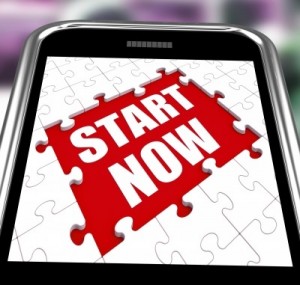
You want to use a strengths based approach, but where do you start? What does it mean in real life? How do you ask strengths based questions to identify and understand your own, or another person’s strengths?
Do you find you a strengths approach comes naturally to you? Or have you found it difficult? We are often more used to looking for problems, rather than looking at what is working. Looking at what is going wrong, rather than what’s going right. Giving solutions instead of looking at what can be built on; finding out what solutions and resources a person, or group already has.
It seems even our brain may be programmed to catastrophise as a first response. Looking at the worst case, imagining what might go wrong.
I am definitely a “catastrophiser” (I made that up so don’t worry about looking for a definition). A strengths approach and strength based questions still do not come naturally. It is still practice, practice, practice. At times I still find it difficult to find the right questions when my mind is yelling out solutions – OK and sometimes I do voice them out loud.
Starting Out with Strength Based Questions:
If you too are new to the whole idea, or you just want a few extra ideas, the following is a list of 50 strength based questions to get you started.
It is not complete.
And it’s definitely not in any kind of order.
And I definitely would not recommend using questions 1 through to 50 as your interview.
To help you focus on finding out your own, or another’s strengths and resources, select the questions that kind of fit. Alter the wording to suit the person, the situation,and your own style. None of this list is specific to brain injury, the questions could be tailored to any situation. Try them on yourself.
As a beginner it can be helpful to choose a small number of questions that you practice and use until you gain confidence. You can expand your repertoire as you become more confident.
When I started with strengths based questions, or now when feeling a bit out of my depth (which is often), I will begin with asking “What is working well for you?” and then add variations on the questions 1- 8 below.
Each question can be like a springboard to further questions. All with the aim of a person, group, or organisation, identifying their strengths;what they have to build upon; what they do well. They should be gentle questions, not challenging or confronting.
Consider strengths and resources as broadly as possible. This might include: the range of people and supports around a person; their health, both physical and emotional; resources such as financial, aids and equipment; beliefs and outlook.
50 Strengths Based Questions
-
What is working well?
-
Can you think of things you have done to help things going well?
-
What have you tried? And what has been helpful?
-
Tell me about what other people are contributing to things going well for you?
-
What could be going better?
-
What stops things working better for you?
-
What would be happening if things were working better for you?
-
What small thing could you do that would make a difference?
-
Tell me about what a good day looks like for you? What makes it a good day?
-
On a scale of 1 to 10 how would you say X is? What might make that score a little better?
-
What are you most proud of in your life?
-
What achievements have you have made? How did you make them happen?
-
What inspires you?
-
What do you like doing? What makes this enjoyable?
-
What do you find comes easily to you?
-
What do you find you learn most easily?
-
What do you want to achieve in your life?
-
When things are going well in your life – tell me what is happening?
-
What are the things in your life that help you keep strong?
-
What do you value about yourself?
-
What would other people who know you say you were good at doing?
-
What would your family and friends say you were good at?
-
You are resilient, what do you think helps you bounce back?
-
What is one thing you could do to have better health, and feeling of wellbeing?
-
How have you faced / overcome the challenges you have had?
-
How have people around you helped you overcome challenges?
-
What are three things that have helped you overcome obstacles?
-
If you had the opportunity what would you like to teach others?
-
Without being modest, what do you value about yourself, what are your greatest strengths?
-
How could/do your strengths help you to be a part of your community?
-
Who is in your life?
-
Who is important in your life?
-
How would you describe the strengths, skills, and resources you have in your life?
-
What could you ask others to do, that would help create a better picture for you?
-
What are the positive factors in your life at present?
-
What are three (or five or ten) things that are going well in your life right now?
-
What gives you energy?
-
What is the most rewarding part of your life?
-
When now, or in the past, have you felt like you are making a difference, making a contribution? How did you make this happen?
-
What would make you feel you are making a contribution?
-
Tell me one, (or five or ten or more) things that you can do?
-
What makes you feel excited OR useful OR satisfied? Tell me about a time when you felt these feelings?
-
Tell me about a time when you responded to a challenge in a way that made you feel really on top of things?
-
How have you been able to develop your skills?
-
How have you been able to meet your needs?
-
What kind of supports have you used that have been helpful to you? How did the supports improve things for you?
-
Tell me about any creative, different solutions you have tried. How did this work out?
-
When you think about X (whatever it is that is stopping things going well) is there anything you can think of that could help in any way?
-
Can you think of one small manageable step that would improve X for you?
-
What resources such as community, people, aids, and equipment do you have now? Do you know of other resources that might be helpful for you?
Remember these are to get you thinking about strength based questions. There is much to learn about working from a strengths approach and you will hopefully find it is rewarding for you and for those you support.
Resources To Get You Started with Strength Based Questions
Here are three starting points that give you a range of different perspectives to think on;
Innovative Resources is the publication and resource site for St Lukes Bendigo and has a great range of resources.
Appreciative Inquiry Commons has all kinds of information and resources about appreciative inquiry and strengths based approaches.
Authentic Happiness is the site of positive psychology and Dr Martin Seligman.
Finally what about examples of strengths people have discovered after brain injury – HERE is an article about people who have discovered artistic creative talents. And for a very public role model we can look to Gabrielle Giffords, and her inspirational recovery.
Please add to the list of questions, add resources, make suggestions, agree and disagree in the Comments below or send me a letter HERE.
And Finally:
To finish with today, an unusual but entirely understandable definition of strength for chocolate lovers everywhere!
“Strength is the capacity to break a chocolate bar into four pieces
with your bare hands
– and then eat just one of the pieces.”
Judith Viorst


Pingback: Friday Link Round-Up: Strengths-Based Practices
Pingback: Milad-un-Nabi, The December 24 | Brighten Somebody's Season
Pingback: To Say or Not To Say - What to Say After Brain Injury - Part 2 - Changed Lives New Journeys